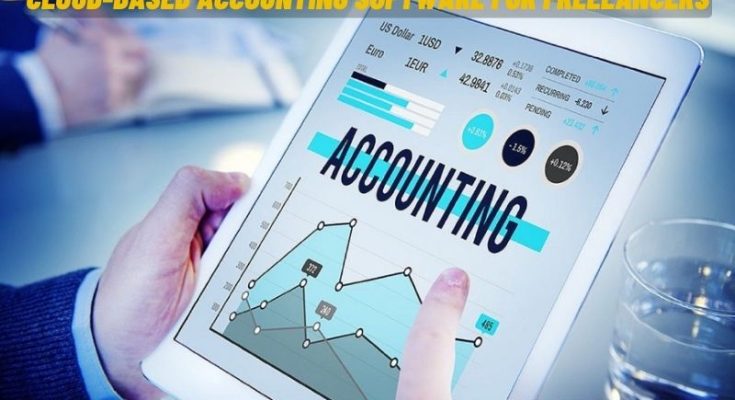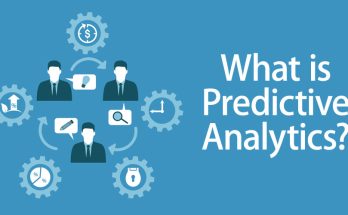Cloud Based Accounting Software for Freelancers
Are you a freelancer looking to streamline your accounting processes and take control of your finances? Look no further! Cloud based accounting software for freelancers is here to revolutionize the way you manage your business finances. In this blog post, we will explore the many benefits of using cloud based accounting software for freelancer and provide some valuable tips on how to choose the right software for your needs. So let’s dive in and discover how this powerful tool can transform the way you handle your financial tasks!

The Benefits of Cloud-Based Accounting Software for Freelancers
As a freelancer, you understand the importance of staying organized and efficient with your finances. That’s where cloud-based accounting software comes in, offering a plethora of benefits to make your life easier.
One major advantage is accessibility. With cloud-based accounting software, you can access your financial data from anywhere at any time. No more being tied down to a specific computer or office space – simply log in to your account from any device with an internet connection and take control of your finances on the go.
Another benefit is real-time updates. Cloud-based accounting software automatically syncs with your bank accounts and credit cards, ensuring that all transactions are instantly recorded and categorized correctly. This eliminates the need for manual entry and reduces the risk of human error.
Additionally, collaboration becomes seamless when using cloud-based accounting software. You can easily share access with your accountant or bookkeeper, allowing them to view and manage your financial information remotely. This streamlines communication and ensures everyone involved has up-to-date information.
Moreover, security is a top priority with cloud-based accounting software providers investing heavily in robust security measures such as encryption protocols and regular backups. Your data will be securely stored in the cloud, protected against physical damage or loss that could occur with traditional paper records.
Cost-effectiveness should not be overlooked when considering cloud-based accounting software for freelancers. Traditional desktop software often requires upfront payment or expensive upgrades over time; however, many cloud-based options offer flexible pricing plans tailored to suit different business needs without hefty upfront costs – making it an affordable solution for freelancers regardless of their budget size.
With these advantages in mind ─ accessibility anytime/anywhere convenience real-time updates collaboration possibilities enhanced security measures ─ it’s clear why so many freelancers are turning towards cloud-based accounting software as their go-to tool for managing their finances effectively!
Top Features to Look for in a Cloud-Based Accounting Software
When it comes to choosing a cloud-based accounting software for your freelance business, there are several key features to look out for. These features will not only help you streamline your financial management but also ensure that you have all the necessary tools at your fingertips.
First and foremost, ease of use is crucial. Look for software that has a user-friendly interface and intuitive navigation. As a freelancer, you don’t want to spend hours trying to figure out how to input expenses or generate reports. A simple and straightforward system will save you time and frustration.
Another important feature is automation. The best cloud-based accounting software should be able to automate tasks such as invoicing, expense tracking, and even tax calculations. This will not only save you valuable time but also reduce the risk of human error.
Integration capabilities are also worth considering. Choose software that seamlessly integrates with other platforms or apps that you use in your freelance business, such as payment gateways or project management tools. This integration allows for smooth data flow between different systems, eliminating the need for manual data entry.
Data security is paramount when dealing with sensitive financial information. Ensure that the cloud-based accounting software you choose offers robust security measures like encryption and regular backups of your data.
Consider scalability. Your freelance business may grow over time, so it’s essential to choose software that can accommodate increasing transaction volumes or additional users without compromising performance.
By keeping these top features in mind when selecting a cloud-based accounting software solution for freelancers, you can make an informed decision about which option best suits your needs and helps streamline your financial processes effectively.
Best Cloud-Based Accounting Software for Freelancers
When it comes to managing your finances as a freelancer, having the right accounting software can make all the difference. With the rise of cloud technology, there are now numerous options available for freelancers looking to streamline their accounting processes. But with so many choices out there, how do you know which one is best for you? Here are some top contenders in the world of cloud-based accounting software for freelancers:
- QuickBooks Online: One of the most popular and well-known options on the market, QuickBooks Online offers a wide range of features tailored specifically for freelancers. From invoicing and expense tracking to tax preparation and reporting capabilities, this software has it all.
- FreshBooks: Known for its user-friendly interface and intuitive design, FreshBooks makes accounting simple and accessible for freelancers. It offers features such as time tracking, project management tools, and customizable invoices.
- Xero: Designed with small businesses and freelancers in mind, Xero offers powerful yet easy-to-use features like bank reconciliation, inventory management, payroll processing (for those who have employees), and an extensive library of integrations.
- Wave Financial: If you’re just starting out as a freelancer or have a limited budget, Wave Financial may be worth considering. This free accounting software includes basic functionalities like invoicing and expense tracking but also provides additional paid services such as payroll processing.
- Zoho Books: Zoho Books is another great option that caters to both small businesses and freelancers alike. With its comprehensive suite of features including automated workflows, client portal access, project billing capabilities,
Remember that everyone’s needs are different when it comes to accounting software – what works best for one freelancer may not work as well for another! Consider factors such as pricing plans/features offered/ ease-of-use /integrations available before making your final decision on which cloud-based accounting software is best suited to meet your specific needs
How to Choose the Right Software for Your Needs
As a freelancer, choosing the right cloud-based accounting software is essential for managing your finances effectively. With so many options available in the market, it can be overwhelming to find the perfect fit for your needs. Here are some tips to help you make an informed decision:
- Assess Your Requirements: Start by evaluating what features and functionalities are important to you. Do you need basic bookkeeping capabilities or more advanced invoicing and project management tools? Consider your business size, complexity, and future growth plans.
- User-Friendly Interface: Look for software that has an intuitive interface and easy navigation. You don’t want to waste time trying to figure out complicated systems when you should be focusing on your work.
- Integration with Other Tools: Consider whether the accounting software can seamlessly integrate with other applications or platforms that you use regularly, such as payment gateways or project management tools.
- Security Measures: Ensure that the software provides robust security measures like encryption and secure data storage to protect sensitive financial information.
- Mobile Accessibility: If you often work on-the-go, choose a platform that offers mobile accessibility so that you can manage your finances from anywhere at any time.
- Customer Support: Check if the software provider offers reliable customer support channels like live chat, email support, or phone assistance in case of any technical issues or queries.
By carefully considering these factors, you’ll be able to select a cloud-based accounting software solution tailored specifically to meet your freelance business needs without unnecessary complexities or compromise on functionality.
Tips for Successfully Using Cloud-Based Accounting Software as a Freelancer
Cloud-based accounting software has revolutionized the way freelancers manage their finances. With its user-friendly interfaces and convenient accessibility, it has become an essential tool for staying organized and maintaining financial stability. However, to make the most of this technology, there are a few tips that can help freelancers successfully navigate through cloud-based accounting software.
It is crucial to choose a software that aligns with your specific needs and preferences. Consider factors such as pricing plans, features offered, and integration capabilities with other platforms you use regularly. This will ensure that you have all the necessary tools at your disposal without unnecessary complications.
Take advantage of automation features available in many cloud-based accounting software solutions. These features can save time by automating tasks like invoicing clients or categorizing expenses. By streamlining these processes, you can focus more on growing your business instead of getting bogged down in administrative work.
Another tip is to regularly review and reconcile your accounts within the software platform. Set aside dedicated time each week or month to go through transactions and ensure everything is accurate and up-to-date. By doing so consistently, you’ll have a clear overview of your financial health at any given moment.
Furthermore, maintain good record-keeping habits by organizing documents within the cloud-based accounting system itself. Upload receipts or invoices directly into their respective transactions for easy reference later on. This eliminates the need for paper clutter while ensuring important documents are always easily accessible when needed.
Consider integrating additional apps or tools that complement your chosen cloud-based accounting software. For example, project management apps or time-tracking tools can seamlessly sync data with your accounting system to provide a comprehensive view of both financials and project progress.



